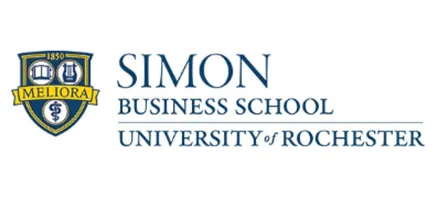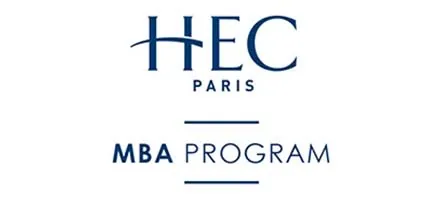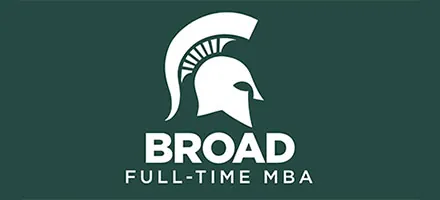
Forget about the winner in today’s (Nov. 4) new 2019 MBA ranking from Bloomberg Businessweek. The big story is the 17-place rise into second place by Dartmouth College’s Tuck School of Business, right behind Stanford’s Graduate School of Business which retained its first-place finish for the second consecutive year.
Massive rankings swings are nothing new, of course, but they tend to be fairly rare at the top of a list because of how entrenched the very best schools are. So for a school like Tuck, which suffered a 22.5% freefall in MBA applications last year, to soar by 17 places in a single year is clearly the most surprising news of the 2019 MBA ranking from Bloomberg Businessweek. It is nearly as shocking as last year’s 12-place plunge by Tuck to an unlikely rank of 19, which contributed to the school’s application plunge and a big rise in the school’s acceptance rate to 34.5% from 22.7% in 2018.
Tuck was not the only big gainer near the top of the list. After rising eight places last year, the University of Virginia’s Darden School of Business jumped another four spots this year to claim a fifth-place finish, its best Businessweek standing ever. That stunning finish put Darden in front of No. 6 Wharton, No. 7 MIT Sloan, No. 8 UC-Berkeley Haas, No. 9 Columbia, and No. 10 Northwestern Kellogg. Rounding out this year’s top five were Harvard Business School, which retained its No. 3 rank from 2018, and the University of Chicago’s Booth School of Business, which inched up a spot to claim fourth place.
THE 2019 MBA RANKING FROM BLOOMBERG BUSINESSWEEK HAS MANY SURPRISES
Oddly, the vast majority of the big brand, highly selective MBA programs suffered declines. In fact, 11 of the top 20 business schools lost at least some ground this year, from Wharton’s fall of four spots to sixth to Duke Fuqua’s drop of five places to rank 20th. (Only five years ago in 2014, Businessweek proclaimed Duke the number one MBA program in the U.S.). MIT, Yale and Carnegie Mellon’s Tepper School of Business all slipped three places each. The biggest drop in the top tier belongs to the University of Southern California’s Marshall School of Business which fell nine places to rank 22nd.
Those changes look utterly boring compared to the 24 schools on this year’s list that saw double-digit climbs or falls, a level of year-over-year volatility that should inspire little confidence in the results. The most severe downturns were suffered by Purdue University’s Krannert School, plunging 28 places to rank 78th; Baylor University’s Hankamer School lost 27 spots to rank 79th, and Tulane University’s Freeman School loss of 23 places to finish in 69th place.
Among the big winners in the 2019 Businessweek ranking, besides Tuck and Darden, were the University of Florida’s Hough School which climbed 23 spots to rank 32nd. the University of South Carolina’s Darla Moore School of Business, which rose 16 places to finish 70th, the University of Rochester’s Simon School, which also jumped 16 spots to rank 29th, and the University of Arizona and the University of Oklahoma whose MBA programs jumped 15 places each to rank, respectively, 61st and 64th on the list.
It also was a good year for UCLA’s Anderson School of Management, which gained five places to rank 12th, and the University of North Carolina’s Kenan-Flagler Business School, which also rose five spots to finish 18th.
KELLOGG STILL LEADS WITH FIRST PLACE FINISHES SINCE 1988
This is the 19th Businessweek MBA ranking, which had been published every other year since its debut in 1988 until the editors moved the list to an annual publication schedule in 2014. Over that time, Kellogg landed in first place five times, Wharton and Chicago Booth four times each, Harvard three times, Stanford twice, and Duke once.
In this first go-round of the new 2019 ranking, Businessweek assessed only U.S. schools, placing numerical ranks on 94 MBA programs. The magazine will publish a global list, combining U.S. and non-U.S. MBA programs on a single ranking before the year is out. That combined list will mark only the second time Businessweek has mixed U.S. and non-U.S programs. When all is said and done, Businessweek will have ranked 131 business schools around the world, up from 124 in 2018.
After reinventing the methodology for its ranking last year, the magazine’s editors kept its approach exactly the same this year. The list is based on year-old employment and pay data supplied by the schools as well as surveys to students, alumni and corporate recruiters. Businessweek said it surveyed 9,016 students and a total of 14,925 alumni. Of those, 5,175 alumni were surveyed in 2019 and 9,750 in 2018. Employers filled out 2,863 surveys.
The methodology revolves around four indexes: compensation (weighted the most at 37.3%), networking (25.7%), learning (21.3%), and entrepreneurship (15.7%). It’s a rather peculiar way to rank full-time MBA programs, without regard to admission standards and putting oversized weight on both networking, which counts more than “learning,” and entrepreneurship when only 5% of MBA graduates launch companies within three months of graduation.









